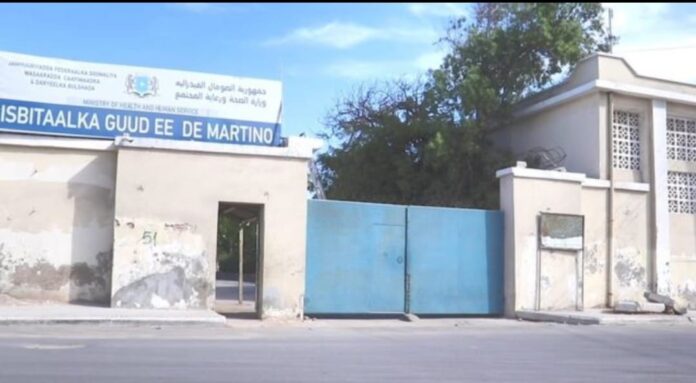De Martino Hospital, serving the community since the 1950s, is in dire need of replacement. With limited resources, the Somali government struggles to rebuild these old institutions, leaving the dedicated medical staff to cope with an increasing number of patients. As residents rely on the free public services provided by these dilapidated hospitals, it’s crucial to address this issue. Here are some suggestions to elevate the problem and bring about positive change:
●Seek Philanthropic Support:
Explore grants from philanthropic organizations, both nationally and internationally, that focus on healthcare initiatives. These grants can provide significant funding for rebuilding the hospitals, ensuring improved facilities for the community.
●Engage Local Businesses:
Approach local businesses and corporations that may be interested in sponsoring the construction of a new hospital. They can contribute financially or provide in-kind support, such as construction materials or expertise. Their involvement can make a substantial difference.
●Community Fundraising:
Organize community events like charity runs, bake sales, or auctions to raise funds for the new hospitals. Engaging with the local community generates support and spreads awareness about the urgent need for improved healthcare facilities.
●Harness the Power of Social Media:
Utilize crowdfunding platforms and social media to reach a wider audience and gather donations from those who empathize with the cause. A compelling campaign highlighting the need for new hospitals and their positive impact on the community can inspire generous contributions.
●Government Grants and Subsidies:
Explore possibilities of government grants or subsidies specifically for healthcare infrastructure projects. Present the case to local government representatives, emphasizing the importance of replacing these hospitals and improving healthcare services.
●Invest in Training:
Allocate resources to train healthcare professionals and support staff, enhancing their skills and knowledge. This investment improves the quality of healthcare services provided and ensures proper maintenance of infrastructure.
●Allocate Sufficient Funding:
Prioritize healthcare infrastructure projects by allocating a significant portion of the national budget to the healthcare sector. Governments can also explore alternative sources of funding, such as partnerships, grants, and loans, to ensure sustainable financial support.
●Regular Maintenance and Monitoring:
Implement proper maintenance schedules and monitoring systems to ensure hospitals are well-maintained and any issues are promptly addressed. This proactive approach prolongs the lifespan of infrastructure and prevents future dilapidation.
●Embrace Technology:
Integrate technology into healthcare delivery and management. This can include telemedicine services, electronic health records, and remote monitoring systems, improving accessibility and efficiency.
Implementing these ideas requires collaboration among government departments, international organizations, communities, and healthcare professionals. It’s crucial to consider this country’s specific situation and needs when developing and implementing strategies to address dilapidated hospitals.
By creating a comprehensive and well-designed project plan and effectively communicating the urgent need for new hospitals, we can gain support and funding from various sources. Let us join forces and work towards providing efficient and cost-effective healthcare for the Somali public, ensuring a brighter future for all. The end
Mohamed Mohamoud Adde is an academic and a political Analyst specialising in offering expert analysis, insight and recommendations on Political developments.
(His goal is to aid stakeholders in making informed decisions and comprehending the complex dynamics of political system in Somalia.)


